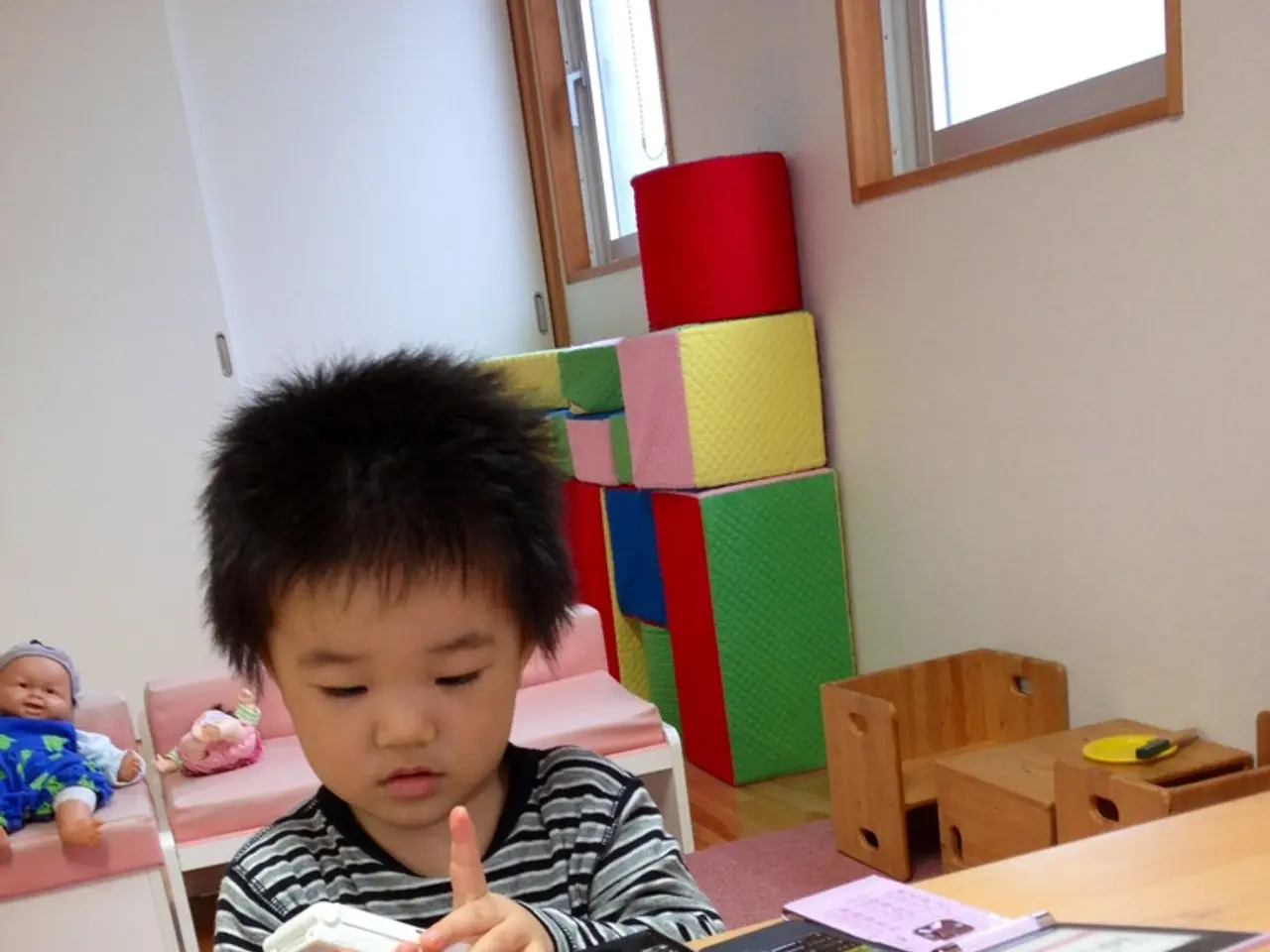"Should schools prohibit mobile phones? Prioritize seizing them from students' parents first!" - Seize Parents' Telephones Immediately!
In the digital age, smartphones have become an integral part of our daily lives, but their influence can sometimes distract us from crucial conversations. This is a reality faced by many, including the author of this article, who admits to struggling with smartphone distraction while writing.
The issue of smartphone distraction is not just a personal concern; it extends to parent-teacher conferences, where the focus should be on discussing a child's progress and educational needs. Observations have been made of parents who, while appearing attentive, are discreetly using their smartphones. This raises questions about the impact of smartphone use on these important meetings.
The debate over banning smartphones at parent-teacher conferences mirrors the broader discussion about cell phone bans in schools. On one hand, proponents argue that bans can help minimize distractions, enhance communication quality, and reduce potential conflicts or misunderstandings. By removing phones, parents would be encouraged to focus attentively on the teacher, fostering more meaningful and productive dialogue.
However, opponents of such bans argue that practical needs for phone access, respect for parental autonomy, and implementation challenges should be considered. Parents may need their phones for emergencies or to coordinate schedules, and an outright ban could cause inconvenience or anxiety. Additionally, schools might be uncomfortable dictating parents' phone usage during these meetings, as this could be perceived as overreach into personal behavior outside the classroom context.
The debate reflects the balance between maintaining focus and order and flexibility and respect for personal autonomy. It is a conversation that extends beyond schools, as swimming pools in places like Hamburg are considering phone bans for parents due to instances of children nearly drowning while parents were distracted by their phones.
In light of these considerations, the author suggests a self-determined approach to managing smartphone use as a way to show children how to handle digital media wisely and consciously. Starting with small steps, such as not looking at smartphones during breakfast for ten minutes, can help break the cycle of constant distraction.
The author also advocates for holding tech giants accountable for issues like hate speech, misinformation, and manipulation, expressing skepticism about their willingness to change their addictive business models solely for the sake of public concern.
Parents, too, are concerned about the impact of social media on their children, with concerns ranging from promoting false beauty standards to encouraging excessive gaming. Studies show that families that introduce phone-free times can significantly reduce their children's problematic screen time.
In conclusion, the debate over smartphone use at parent-teacher conferences is a reflection of the broader discussion about digital responsibility. It is a conversation that requires thoughtful consideration and balanced solutions, with the ultimate goal of fostering meaningful and productive conversations about our children's education and well-being.
- In the realm of education and self-development, conversations about implementing community policies to limit smartphone usage during parent-teacher conferences are echoed in discussions about employment policies within various workplaces, as constant distractions can hinder the quality of communication and hinder productivity.
- The increasing prevalence of smartphone use, particularly in family settings, raises questions about its impact on lifestyle choices. For instance, fashion-and-beauty trends have evolved to incorporate digital technologies, with social media playing a significant role in shaping beauty standards and influencing consumer purchasing decisions.
- The need for responsible smartphone usage extends beyond educational settings and workplaces, affecting personal growth and overall well-being. As parents grapple with the challenges of raising children in a tech-filled world, they must consider the role that personal-growth strategies, such as mindfulness practices and media literacy education, play in helping children navigate the digital landscape responsibly.




